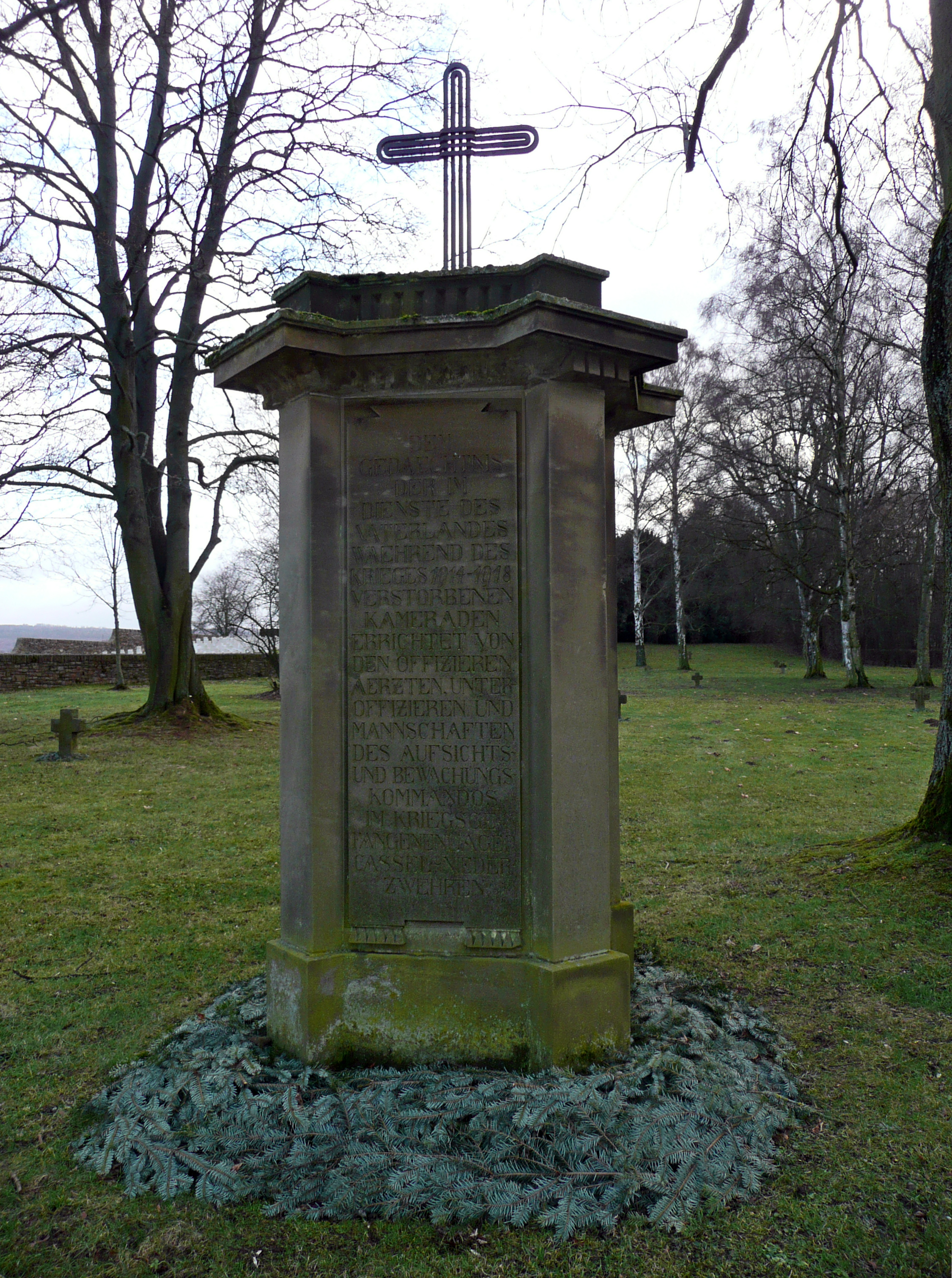Niederzwehren on:
[Wikipedia]
[Google]
[Amazon]
Niederzwehren is a small town in Germany, part of the city of Kassel,

 The town lies between Kassel city centre and . The town, literally Lower Zwehren, links to Oberzwehren, Upper Zwehren, with the overall area of Zwehren or Tweren appearing in documents from as early as 1074. It was several times destroyed by fire, including during the
The town lies between Kassel city centre and . The town, literally Lower Zwehren, links to Oberzwehren, Upper Zwehren, with the overall area of Zwehren or Tweren appearing in documents from as early as 1074. It was several times destroyed by fire, including during the
Hesse
Hesse (, , ) or Hessia (, ; german: Hessen ), officially the State of Hessen (german: links=no, Land Hessen), is a state in Germany. Its capital city is Wiesbaden, and the largest urban area is Frankfurt. Two other major historic cities are Dar ...
. It is notable for its First World War
World War I (28 July 1914 11 November 1918), often abbreviated as WWI, was one of the deadliest global conflicts in history. Belligerents included much of Europe, the Russian Empire, the United States, and the Ottoman Empire, with fightin ...
prisoner-of-war camp and a consequent sizable war cemetery for the British prisoners who died in captivity.
Town
Thirty Years War
The Thirty Years' War was one of the longest and most destructive conflicts in European history, lasting from 1618 to 1648. Fought primarily in Central Europe, an estimated 4.5 to 8 million soldiers and civilians died as a result of battl ...
.
In the 19th century it was home to the 18th (Thuringian) Foot Artillery, who had a barracks on the edge of the town.
In 1936 the village officially came under the jurisdiction of Kassel.
Famous residents include storyteller Dorothea Viehmann
Dorothea Viehmann (November 8, 1755 – November 17, 1816) was a German storyteller. Her stories were an important source for the fairy tales collected by the Brothers Grimm. Most of Dorothea Viehmann's tales were published in the second vol ...
, politician Elisabeth Selbert
Elisabeth Selbert (1896–1986) was a German politician and lawyer. She was one of the four women who worked on the Basic Law for the Federal Republic of Germany, collectively called the ''Mütter des Grundgesetzes'' ( en, Mothers of the B ...
and brewer Frederick Krug.
Camp
The camp was begun around December 1914 and held British and French prisoners captured on the western front. Early in 1915 Russian prisoners from the eastern front also arrived with numbers peaking at around 20,000. The German staff controlling this number probably totalled around 150 men. The camp operated beyond the armistice of November 1918 and was only finally closed in the summer of 1919.Niederzwehren War Cemetery
The cemetery was begun early in 1915 specifically to bury prisoners-of-war. Prisoners were mainly British and French from the western front, but also included some Russian prisoners. By 1919 it contained over 3000 graves, but numbers were reduced mainly due to the French practice of repatriating French victims. The cemetery was formalised by British authorities in 1922 to a design by SirRobert Lorimer
Sir Robert Stodart Lorimer, KBE (4 November 1864 – 13 September 1929) was a prolific Scottish architect and furniture designer noted for his sensitive restorations of historic houses and castles, for new work in Scots Baronial and Got ...
. This included bringing dead prisoners from at least a dozen other smaller camps around Germany as a consolidation exercise. The ground is officially British soil, owned by the British crown.Dictionary of Scottish Architects: Robert Lorimer
The graveyard currently holds 1795 Commonwealth graves from the First World War
World War I (28 July 1914 11 November 1918), often abbreviated as WWI, was one of the deadliest global conflicts in history. Belligerents included much of Europe, the Russian Empire, the United States, and the Ottoman Empire, with fightin ...
, largely those who died of wounds following capture, or from disease within the camp. Notable graves include:
* Julian Royds Gribble VC grave III.F.4
*James Richardson Spensley
James Richardson Spensley (17 May 1867 – 10 November 1915) was an English doctor, footballer, manager, Scout leader and medic from Stoke Newington, London. He is considered to be one of the "Fathers of Italian football", due to his association ...
grave III.H.5
The adjacent Russian War Cemetery contains around 2000 but these are not individually marked and are simply remembered by a Russian cross.
The Russian cemetery (to one side) contains a relatively rare monument: remembering the 38 guards who died during their duties (mainly during the Spanish flu
The 1918–1920 influenza pandemic, commonly known by the misnomer Spanish flu or as the Great Influenza epidemic, was an exceptionally deadly global influenza pandemic caused by the H1N1 influenza A virus. The earliest documented case wa ...
epidemic of 1918).
References
{{authority control Former municipalities in Hesse Kassel Commonwealth War Graves Commission cemeteries in Germany